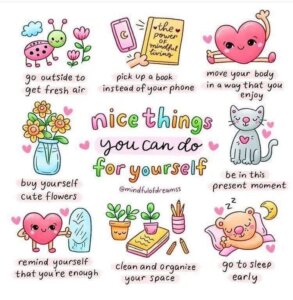
My name is Morgan Haynes, and I am the GEAR UP First Year College Advisor at the College of Southern Nevada (CSN). I also work within the First Year Experience (FYE) Department at CSN, where I have the opportunity to welcome students and provide fun and resourceful programming during the students’ first year.
As we are in the second half of the academic year, students can go through a lot of stress due to their academic responsibilities. According to the Anxiety and Depression Association of America, 80% of college students frequently or sometimes experience stress daily. The American Psychological Association reports that teens (13-17) reported that their stress levels during the school year exceeded what they believe to be healthy (5.8 on a 10-point scale).
Long-term stress can have detrimental effects if left unmanaged. It can affect your mental and physical health, but also your academic success and relationships. Identifying and understanding where your stress comes from can help you manage it. Below are a few tips on stress management.
Get proper rest and sleep
The American Psychological Association notes that getting enough sleep allows our brains to recharge, repair, and boost the immune system. It also helps promote memory consolidation which can help with cognitive function and academic performance. If you are having issues with sleep, try avoiding excess caffeine, and putting away technology an hour before you go to bed.
Practice self-care
Set aside time in your schedule to prioritize self-care. It will help reduce tension and stress. Take a bubble bath, meditate, practice yoga, or going on hikes are just some ways you can practice relaxation.
Focus on health and nutrition
Developing good habits like eating a balanced diet and exercising regularly can help manage stress and prevent dramatic weight loss or weight gain. This can also help reduce fatigue, improve mental clarity and increase endorphins.
Manage time effectively
Developing time management strategies helps you stay organized and better prioritize your most important tasks. Keeping a planner and writing down upcoming assignments and exams will help you prioritize your time. When you keep your living environment and workspace organized it will reduce distractions and anxiety.
Journaling
Journaling can be extremely therapeutic and lower stress levels. Write down your daily thoughts and feelings. When you practice this type of self-reflection, it can help put things into perspective so that you can effectively manage your stressors.
Statistical data referenced from:




















